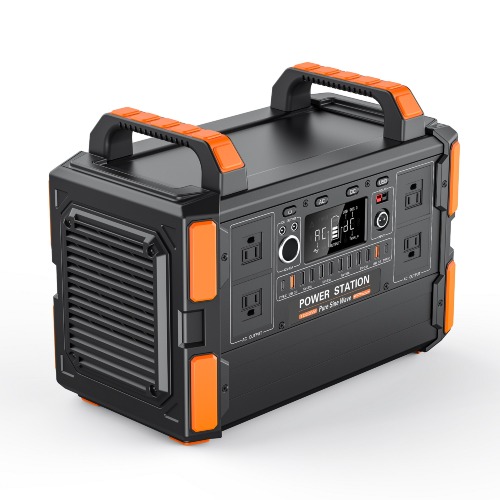The efficiency of the charging process for portable power station batteries depends on several factors, including the type of battery technology used and the charging method employed. Here's how to assess the efficiency:
Charging Method: Common methods include AC (wall outlet), DC (car adapter), solar, or a combination of these. The efficiency of each charging method can vary based on factors such as conversion losses and charging circuitry.
Charge Controller Efficiency: Charge controllers help regulate the charging process, prevent overcharging, and optimize charging efficiency. High-quality charge controllers can improve overall charging efficiency.
Conversion Efficiency: Solar panels convert sunlight into electricity, and the efficiency of this conversion can vary. A higher efficiency charge controller and power conversion system can extract more energy from the solar panels, improving overall charging efficiency.
Battery Chemistry: Different battery chemistries have different charging characteristics. For example, lithium-ion batteries typically have higher charging efficiency compared to lead-acid batteries. Lithium-ion batteries can accept charge quickly and efficiently, whereas lead-acid batteries may have lower charging efficiency and require longer charge times.
Heat Dissipation: Heat generation during charging can affect efficiency. Efficient heat dissipation mechanisms help prevent overheating and energy losses during charging, improving overall charging efficiency.
Smart Charging Features: Smart charging features optimize the charging process based on factors such as battery state-of-charge, temperature, and input power conditions, maximizing charging efficiency.



 English
English Español
Español

